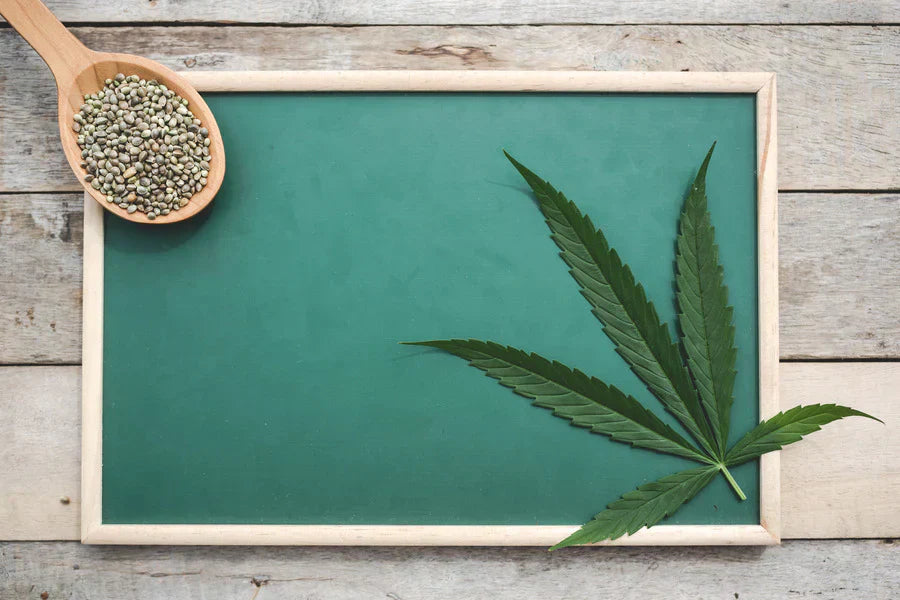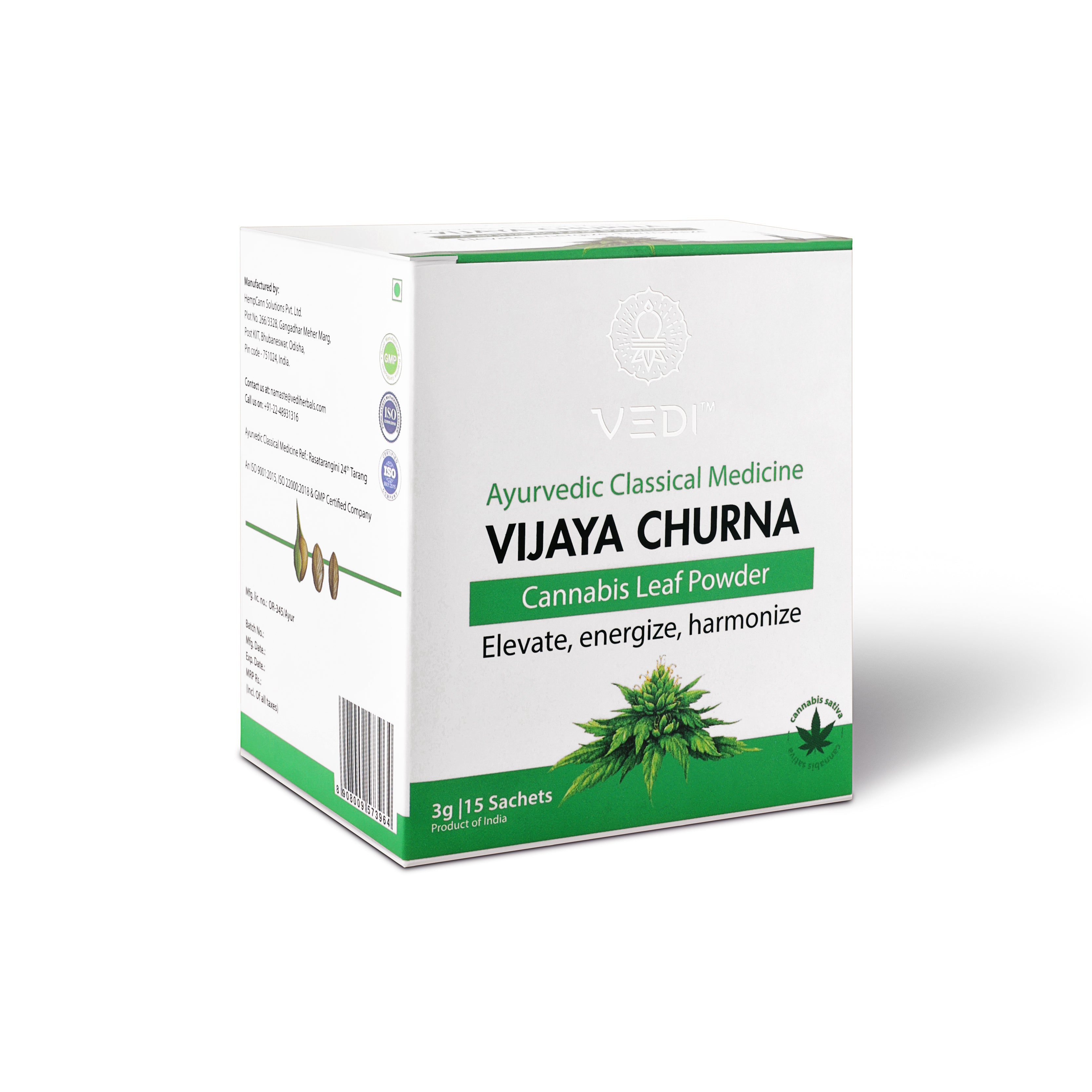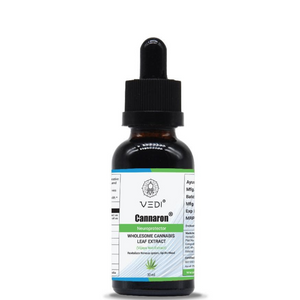Hemp Seeds: Benefits, Nutritional Value, Side Effects, Dosage:

Discover the exceptional power of hemp seeds, from nutritional value, health benefits to recommended dosages. Elevate your well-being with hemp seeds now!
Introduction
Hemp seeds, often referred to as "hemp hearts," have emerged as a superfood that is garnering attention for their exceptional nutritional value and potential health benefits. These tiny seeds, derived from the Cannabis sativa plant, have a rich history that dates back thousands of years, and they offer a wide range of nutrients that can support overall well-being.
As we delve into the intriguing realm of hemp seeds, this article aims to shed light on their nature, their historical journey through time, and their potential to impact our well-being in the modern era.
What are Hemp Seeds?
Hemp seeds, scientifically known as Cannabis sativa L., are the edible seeds derived from the hemp plant. Unlike its close cousin marijuana, hemp seeds contain minimal levels of tetrahydrocannabinol (THC), the psychoactive compound responsible for the "high" associated with cannabis consumption. Instead, hemp seeds are rich in various nutrients, making them a valuable addition to a balanced diet.
Hemp seeds possess a unique combination of nutrients that contribute to their reputation as a superfood. Bursting with essential fatty acids, including omega-3 and omega-6, these seeds are a boon for heart health, brain function, and inflammation management. Additionally, hemp seeds provide a rich source of plant-based protein, containing all nine essential amino acids necessary for various bodily functions, from muscle growth to immune system support. This impressive nutritional profile, coupled with their versatility in culinary applications, makes both shelled hemp seeds vs hemp seeds a remarkable addition to any diet.
Historical Significance of Hemp Seeds
Hemp seeds have a fascinating historical background, dating back to ancient civilizations. Records indicate that hemp seeds were used in both culinary and medicinal contexts in ancient China and India. In these cultures, hemp seeds were prized for their nutritional value and potential health benefits.
Beyond their use as a food source, hemp seeds were employed to create textiles, ropes, and even paper due to the plant's fibrous properties. The versatility of the hemp plant and its seeds played a crucial role in supporting populations and contributing to the development of various industries throughout history.

Nutritional Value of Hemp Seeds
Hemp seeds are a nutritional powerhouse, packing an impressive array of nutrients essential for overall health. When considering their nutritional value, hemp seeds offer:
- Protein: Hemp seeds are considered a high-quality source of plant-based protein, containing all nine essential amino acids. This protein content is comparable to that found in meat, dairy, and other protein-rich foods, making toasted hemp seeds and hemp seed oil a valuable option for vegetarians and vegans.
- Unsaturated Fats: Abounding in healthy fats, hemp seed oil contains omega-3 and omega-6 fatty acids that play a pivotal role in sustaining heart health, bolstering brain functionality, and mitigating inflammation within the body.
- Minerals & Vitamins: Hemp seeds are rich in essential minerals like magnesium, potassium, phosphorus, and zinc. Additionally, they provide a variety of vitamins, including vitamin E and B vitamins, which play vital roles in various bodily processes.
- Fiber: Hemp seed oil is a good source of dietary fiber, promoting digestive health and aiding in the regulation of blood sugar levels. The nutritional bounty of hemp seeds is bolstered through innovative applications like toasted hemp seeds and cold-pressed hemp seed oil, amplifying their potential health benefits.
Health Benefits of Hemp Seeds
The nutritional health benefits of hemp seeds span from protecting brain health and boosting heart well-being to soothing skin conditions and aiding digestion. The versatility of hemp seeds extends to various aspects, including hemp seed oil for cancer patients and harnessing its properties for skin cleansing and hydration. The significance of cold-pressed hemp seed oil benefits is accentuated through practices such as using hemp seed essential oil and exploring its potential for skin health.
Recognizing the importance of hemp seeds nutrition per 100g underscores their nutritional richness, as well as their potential to address anti-aging concerns through attributes like hemp seed oil cream. Let’s know more.
- Protects Brain: The omega-3 fatty acids present in hemp seeds are known to support brain health, potentially reducing the risk of cognitive decline and promoting optimal brain function.
- Boosts Heart Health: The balanced ratio of omega-3 to omega-6 fatty acids in hemp seeds contributes to cardiovascular well-being by lowering cholesterol levels, reducing blood pressure, and supporting overall heart function.
- Reduces Inflammation: Hemp seeds contain compounds such as gamma-linolenic acid (GLA) that possess anti-inflammatory properties. These compounds may help manage chronic inflammatory conditions.
- Improves Skin Conditions: Hemp seed oil, extracted from the seeds, is rich in antioxidants and essential fatty acids that can help soothe and alleviate skin conditions like eczema, acne, and dryness. This is the reason why hemp seed oil for cleansing skin and anti-aging is doing wonders in the skincare industry.
- Relieves Rheumatoid Arthritis: The anti-inflammatory properties of hemp seeds, particularly the GLA content, have been linked to potential relief from the symptoms of rheumatoid arthritis.
- Great Source of Plant-Based Protein: Hemp seeds offer a complete protein source, meaning they contain all essential amino acids required by the human body. This makes them valuable for muscle repair, growth, and overall health.
- Reduce Symptoms of PMS and Menopause: The presence of GLA in hemp seeds has been associated with reducing symptoms related to hormonal imbalances, such as those experienced during PMS and menopause.
Aids Digestion: The dietary fiber in hemp seeds supports digestive health by promoting regular bowel movements and aiding in the maintenance of a healthy gut environment.

How to Add Hemp Seeds to Your Diet?
Embracing these creative avenues offers not only a delightful culinary experience but also a means to tap into the numerous health benefits associated with hemp seeds. From the advantages of hemp seed oil omega 3 and 6 to the versatility of toasted hemp seeds and cold-pressed hemp seed oil benefits, these tiny nutritional powerhouses seamlessly integrate into diverse dietary preferences. Here are several creative ways to enjoy the nutritional benefits of hemp seeds:
- Sprinkling on Cereal or Yogurt: Add a nutritious crunch to your morning routine by sprinkling whole or ground hemp seeds on your favorite breakfast cereal or yogurt.
- Enhancing Smoothies: Elevate the nutritional content of your smoothies by incorporating a tablespoon of hemp seeds. Blend them with fruits, vegetables, and a liquid base for a satisfying and nutrient-packed beverage.
- Baking and Cooking: Experiment with baking recipes by adding hemp seeds to muffins, cookies, and granola bars for an extra boost of omega-3 fatty acids and protein.
- Homemade Hemp Milk: Considering the health benefits of hemp seed milk, one should try to create your own plant-based milk by blending whole hemp seeds with water and straining the mixture. This milk alternative can be enjoyed in various recipes.
- Salad Toppings: Elevate the texture and nutritional value of your salads by sprinkling a mixture of hemp seeds, other seeds, and nuts on top.
As you engage in these culinary explorations, you'll unlock a world of flavors and nutritional gains, making hemp seeds an excellent addition to any balanced diet or even hemp seed recipes for weight loss.
Side Effects of Hemp Seed
Hemp seeds are generally safe for consumption and well-tolerated by most individuals. However, like any food, excessive consumption can lead to certain side effects. The high fiber content in hemp seeds may cause digestive discomfort, bloating, or gas if consumed in large amounts. It's recommended to start with a small portion and gradually increase intake to allow your digestive system to adjust.
Precautions to Take with Hemp Seeds
Before introducing hemp seeds into your diet, it's important to exercise caution, especially if you have specific health conditions or allergies. Individuals with known allergies to hemp or other plants in the Cannabaceae family should consult a healthcare professional before consuming hemp seeds. Pregnant and breastfeeding individuals should also seek medical advice before incorporating hemp seeds into their regular diet.
Recommended Dosage of Hemp Seeds
While there is no universally recommended dosage for hemp seeds, a general guideline is to incorporate around 1 to 2 tablespoons (approximately 30 grams) of hemp seeds into your daily diet. This amount provides a significant dose of essential nutrients without overwhelming your system. For maximum efficacy, it's crucial to recognize practices like sterilized hemp seeds and proper methods for storing hemp seeds.
Conclusion
Hemp seeds, with their rich history and impressive nutritional profile, have earned their status as a superfood worthy of attention. From their ancient uses to their modern health implications, hemp seeds and hemp seed essential oil offer a multitude of benefits that support brain health, cardiovascular well-being, inflammation reduction, improved skin conditions, and more. By integrating these tiny powerhouses into your regular diet, you can harness their nutritional potential and potentially enhance your overall quality of life.
As with any dietary adjustment, it's essential to consult with a healthcare professional to ensure that hemp seeds align with your individual health needs and goals.
FAQs
What is hemp seed?
Hemp seeds are the edible kernels derived from the Cannabis sativa plant. Rich in protein, healthy fats, minerals, and vitamins, they offer a nutritional boost and are a valuable addition to a balanced diet. These seeds do not contain significant levels of THC, the psychoactive compound found in marijuana, and are renowned for their versatile culinary applications.
How to eat hemp seeds?
Hemp seeds can be easily incorporated into various dishes. They can be sprinkled over yogurt, cereal, or salads for a nutty crunch, blended into smoothies for added nutrition, or included in baking recipes for a protein-rich twist. Their mild flavor complements both sweet and savory foods.
How long does hemp seed stay in your system?
Hemp seeds are generally metabolized within a few hours after consumption. They do not linger in the system for an extended duration, making their impact relatively short-term.
Are hemp seeds fattening?
Hemp seeds are not considered fattening. In fact, their nutrient-dense profile, including high-quality protein and healthy fats, can contribute to a balanced diet. Their satiating properties might aid in weight management by promoting feelings of fullness.
How to make hemp seed oil?
Hemp seed oil is produced through a cold-pressing process, where the oil is extracted from the seeds without using heat. This method preserves the oil's nutritional content, including essential fatty acids and antioxidants, while also retaining its distinct nutty flavor.
How to use hemp seed oil as moisturizer?
Hemp seed oil can be applied as a moisturizer by gently massaging a small amount onto clean skin. The oil's omega-3 and omega-6 fatty acids help hydrate and nourish the skin, making it an excellent option for promoting skin health and maintaining a natural glow.
Is hemp seed oil legal?
Hemp seed oil is legal in many countries due to its low THC content, which eliminates the psychoactive effects associated with marijuana. However, legal regulations vary, so it's advisable to verify local laws before purchasing or using hemp seed oil.
Can hemp seeds make you gain weight?
Consuming hemp seeds in moderation is unlikely to lead to significant weight gain. Their nutrient composition, including protein and fiber, can contribute to a balanced diet and potentially aid in weight management by promoting fullness and supporting overall health.
References:
- Dighriri IM, Alsubaie AM, Hakami FM, Hamithi DM, Alshekh MM, Khobrani FA, Dalak FE, Hakami AA, Alsueaadi EH, Alsaawi LS, Alshammari SF, Alqahtani AS, Alawi IA, Aljuaid AA, Tawhari MQ. Effects of Omega-3 Polyunsaturated Fatty Acids on Brain Functions: A Systematic Review. Cureus. 2022 Oct 9;14(10):e30091. doi: 10.7759/cureus.30091. PMID: 36381743; PMCID: PMC9641984.
- Rodriguez-Leyva D, Pierce GN. The cardiac and haemostatic effects of dietary hempseed. Nutr Metab (Lond). 2010 Apr 21;7:32. doi: 10.1186/1743-7075-7-32. PMID: 20409317; PMCID: PMC2868018.
- Farinon B, Molinari R, Costantini L, Merendino N. The seed of industrial hemp (Cannabis sativa L.): Nutritional Quality and Potential Functionality for Human Health and Nutrition. Nutrients. 2020 Jun 29;12(7):1935. doi: 10.3390/nu12071935. PMID: 32610691; PMCID: PMC7400098.
- Petrovici AR, Simionescu N, Sandu AI, Paraschiv V, Silion M, Pinteala M. New Insights on Hemp Oil Enriched in Cannabidiol: Decarboxylation, Antioxidant Properties and In Vitro Anticancer Effect. Antioxidants (Basel). 2021 May 7;10(5):738. doi: 10.3390/antiox10050738. PMID: 34067035; PMCID: PMC8150740.









